
On May 9th local time, Roger Corman, a famous American filmmaker known as the "King of B Movies", passed away at his residence in California, USA at the age of 98.

Roger Corman
Roger Corman's film career spanned more than 70 years, and he participated in the production of more than 500 films. He was particularly good at acting as a mentor and producer for young directors. Many of the world's most powerful film stars got the opportunity to make films in their early years thanks to his keen eye for talent: he was the producer of Martin Scorsese's second feature film "The Human Torch"; he was the producer of Francis Ford Coppola's first feature film "Dementia"; he was also the producer of Jonathan Demme's first feature film "Prison on Fire".
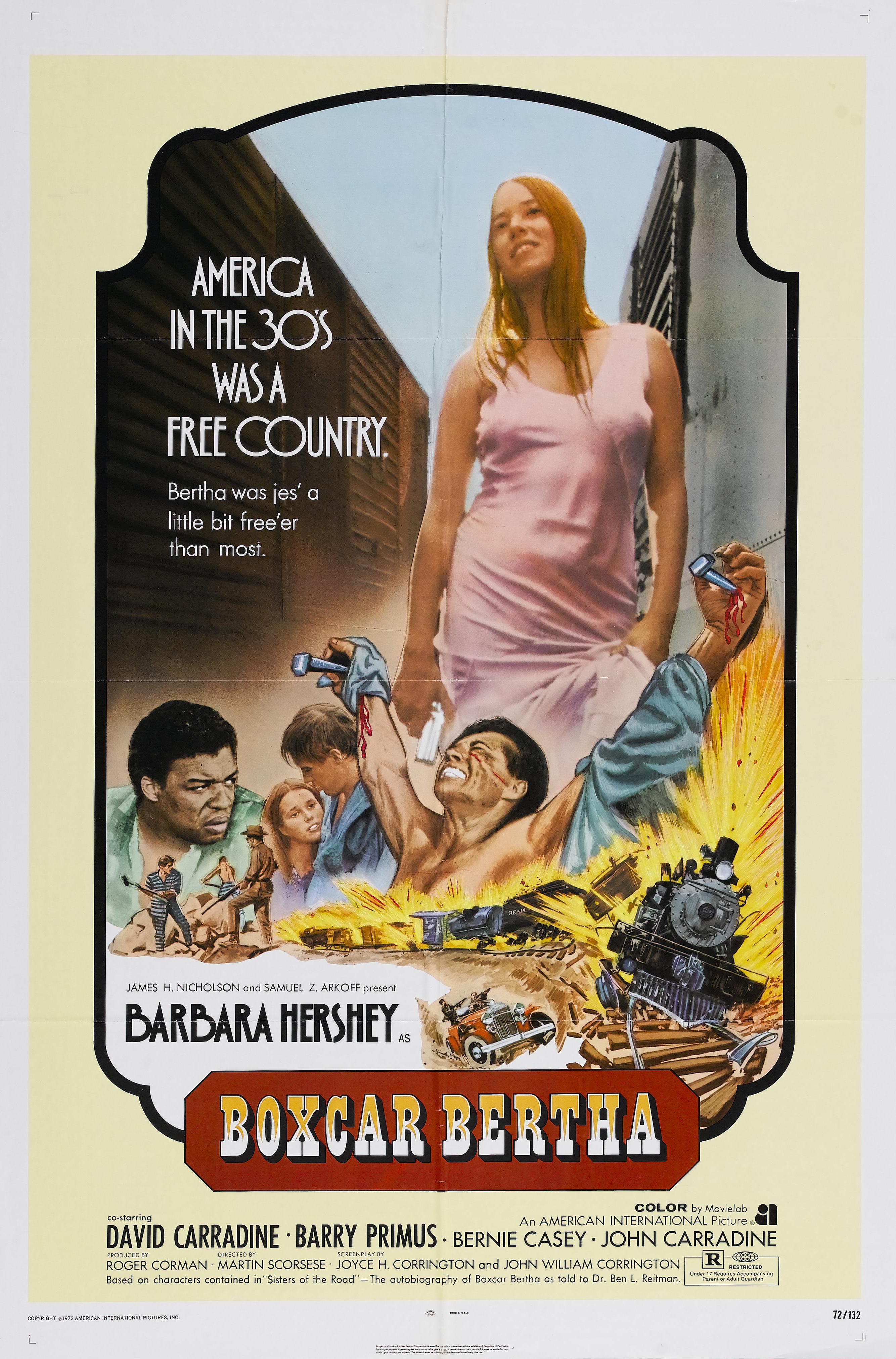
Poster of Cold Blooded Thunderbolt
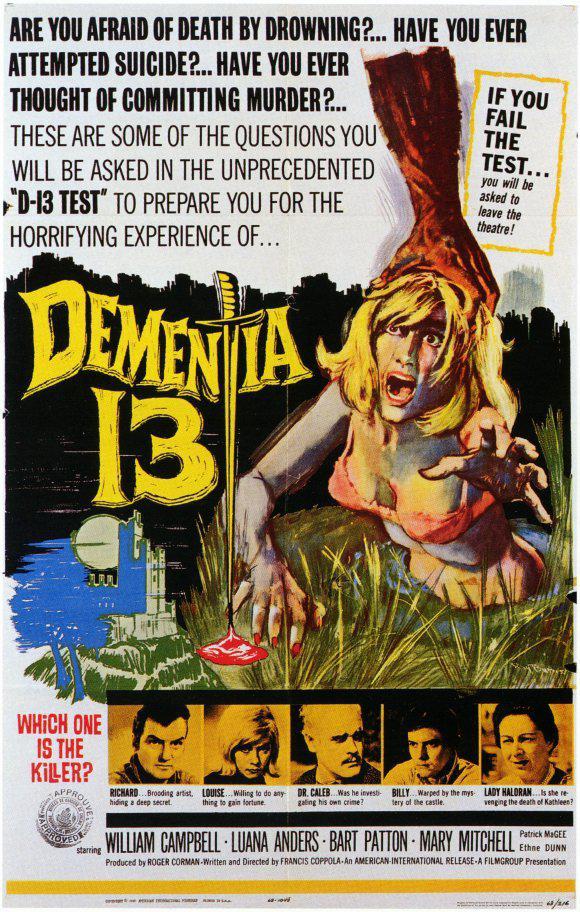
Dementia poster

"Prison on Fire" poster
In addition, Jack Nicholson, Robert De Niro, Bruce Dern, Peter Fonda, James Cameron, Peter Bogdanovich, Ron Howard and other well-known names also received guidance and assistance from Corman when they first entered the industry. No wonder, in addition to the title of "King of B-Movies", some people also regard him as the founder of the "New Hollywood" movement.
The so-called B-grade film refers to the relatively smaller, lower-cost, and fewer-starred films in the two-film system that was popular in American theaters at the time. Roger Corman, who had never received any professional film training, was good at producing and shooting such works. He was born in Detroit on April 5, 1926, studied engineering at Stanford University, and served in the Navy for three years during World War II.
After entering the society, Corman started as a mailroom worker at 20th Century Fox, and gradually rose to script reader with his keen sense of smell. However, the various problems of overstaffing and rigid systems in Hollywood film studios made him determined to jump out of the system in the 1950s and embark on the road of independent production.
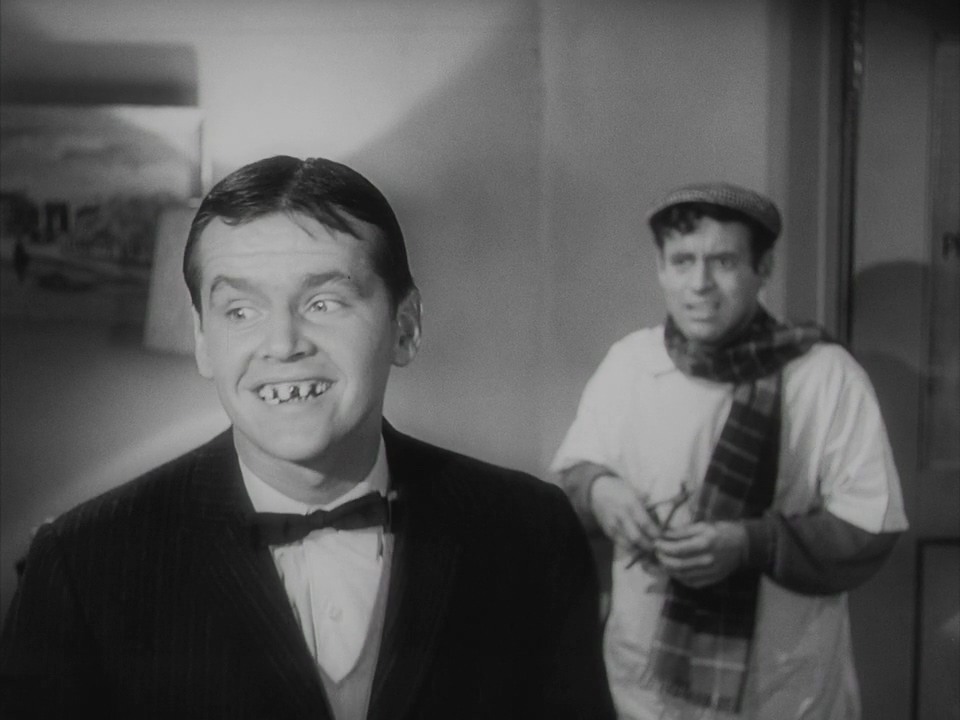
Jack Nicholson in Little Shop of Horrors
In 1960, he produced Little Shop of Horrors, starring newcomer Jack Nicholson, which was famous for being shot in just two days and one night. "Low-budget movies are subject to many restrictions, but there are also many opportunities. You can be bolder and take more risks. The budget is limited, so you have to find a more creative way to solve the problems encountered in the shooting to present the concept you want to present." Corman once said.
Of course, low cost and short time do not mean that Corman has no requirements for the films he makes. In the 1960s and 1970s, he saw the radical changes in American social atmosphere and launched various quick-hand works involving sex, psychedelic drugs, and violence, which not only won the favor of young audiences, but also implied the social implication of subverting the existing system.
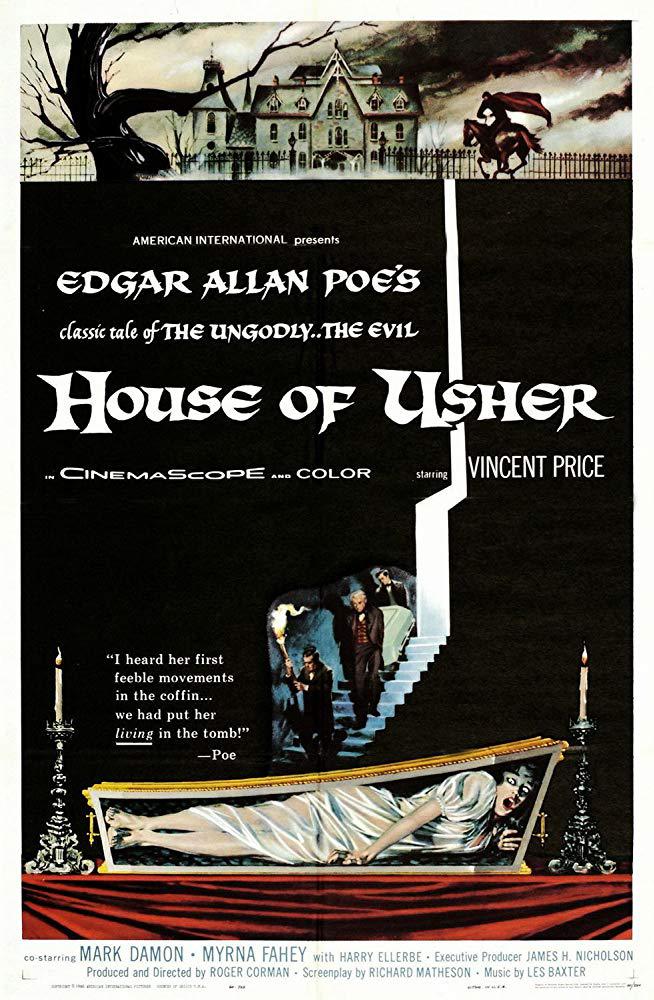
Poster for The Fall of the House of Usher
In addition to being a producer, Corman is also a director. His masterpiece is "The Fall of the House of Usher", adapted from the work of Edgar Allan Poe. In 2005, the film was selected by the Library of Congress for the Film Heritage Protection Project and was awarded the status of a national treasure. Of course, more often than not, his works are more commercial than artistic. They are all about "short, flat, fast" and low investment. No matter what type, as long as it can make money, it's fine; if it can also bring some extra artistry, it will be a pleasant surprise.
However, in the 1970s and 1980s, with the release of blockbuster films such as "Jaws" and the emergence of the summer movie season concept, the Hollywood ecosystem underwent another major change. Low-cost films that had been popular for decades gradually became less popular and lost young audiences. As a result, B-level films produced by Corman gradually lost their access to theaters and could only get a share of the video market.
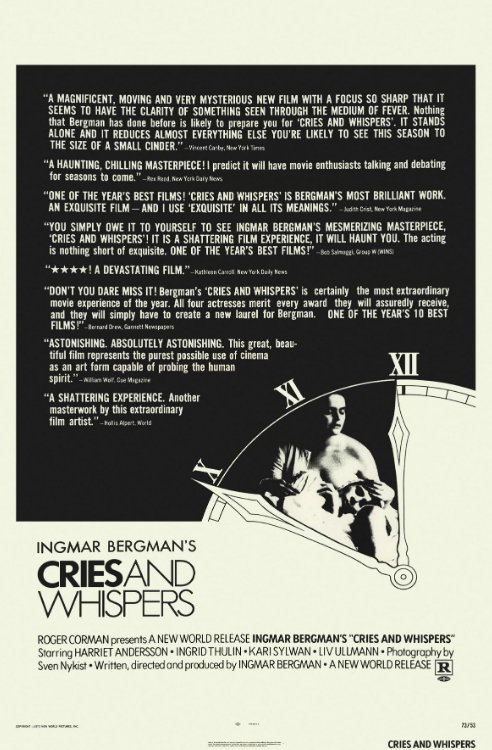
Bergman's "Cries and Whispers" was introduced to the United States by Roger Corman
In the early 1980s, Roger Corman changed his track to seek new opportunities and entered the field of overseas film distribution, bringing European art films such as Bergman's "Cries and Whispers", Schlöndorff's "The Tin Drum", and Fellini's "Amarcord" to the United States, and even screened them in drive-in theaters. He once said in an interview that Hollywood should not shoot blockbusters at such a high cost, both from an artistic and commercial perspective: "I think that in our society, this money could have been used to do something more meaningful."
In 2009, Corman was awarded the Academy Award for Lifetime Achievement. "In my opinion, if you want to be successful, you have to seize opportunities. The best films today are basically made by those innovative filmmakers who dare to take the most risks and gamble the most. So I say to you, keep gambling, keep taking risks," he said in his acceptance speech.
After the news of Roger Corman's death, many Hollywood celebrities posted messages on social media to mourn him. Martin Scorsese said, "It was Roger Corman who allowed me to start my film career. As a producer, he would set guidelines and then, within that scope, let go and give me great freedom. In fact, it was he who taught me how to really make a movie. I will always be grateful for the opportunities and teachings he gave me. I will always be proud to say: I graduated from Roger Corman Film School."